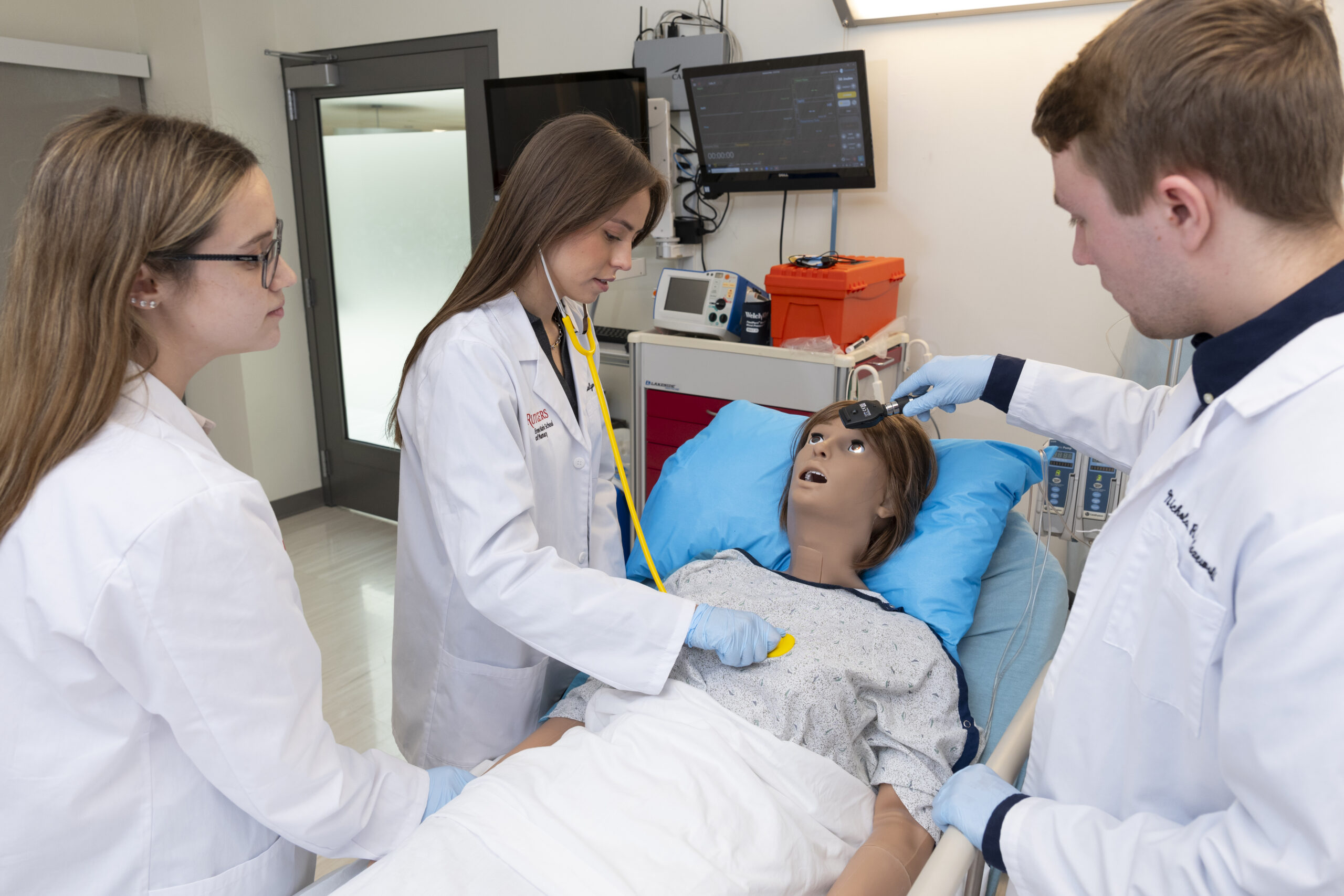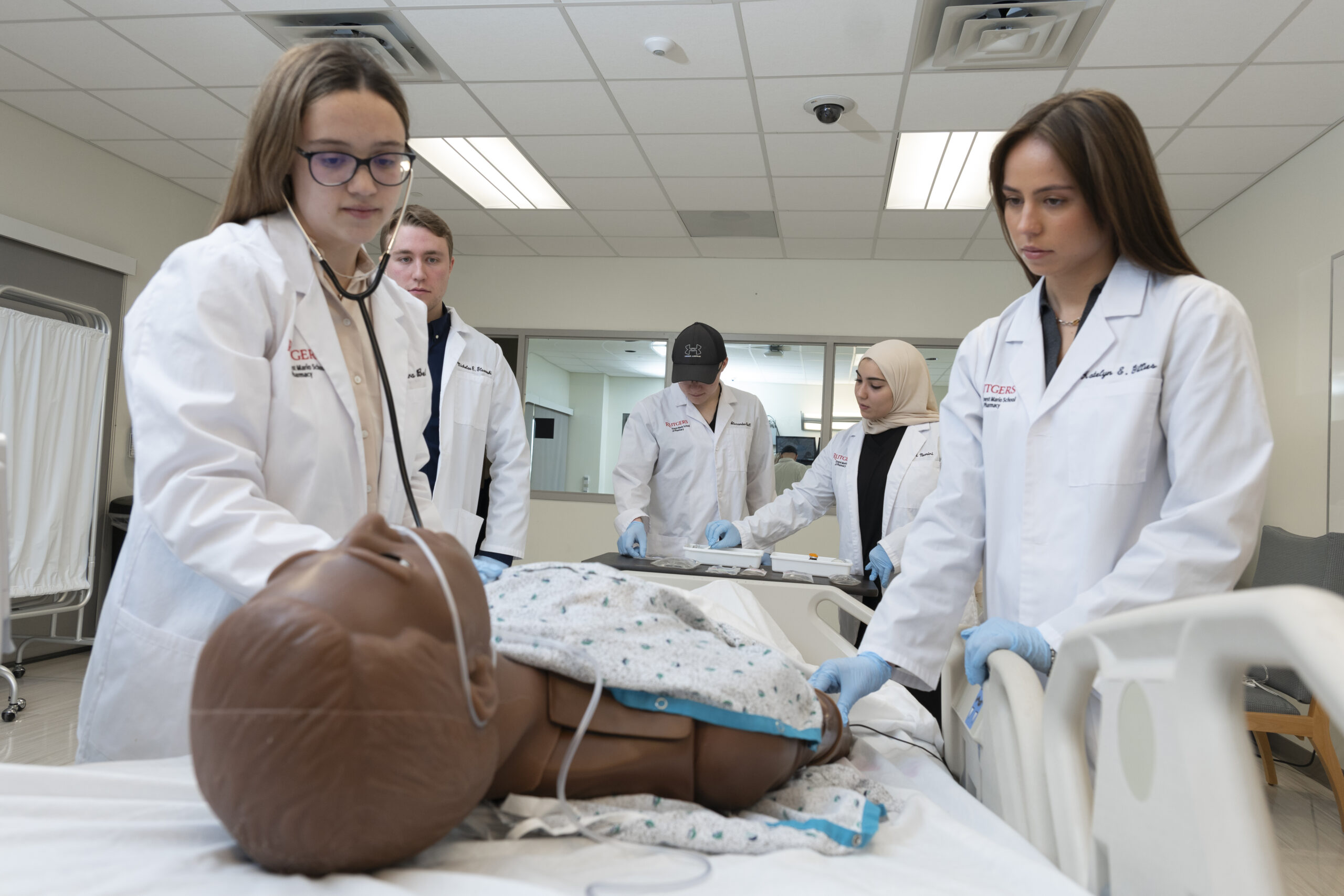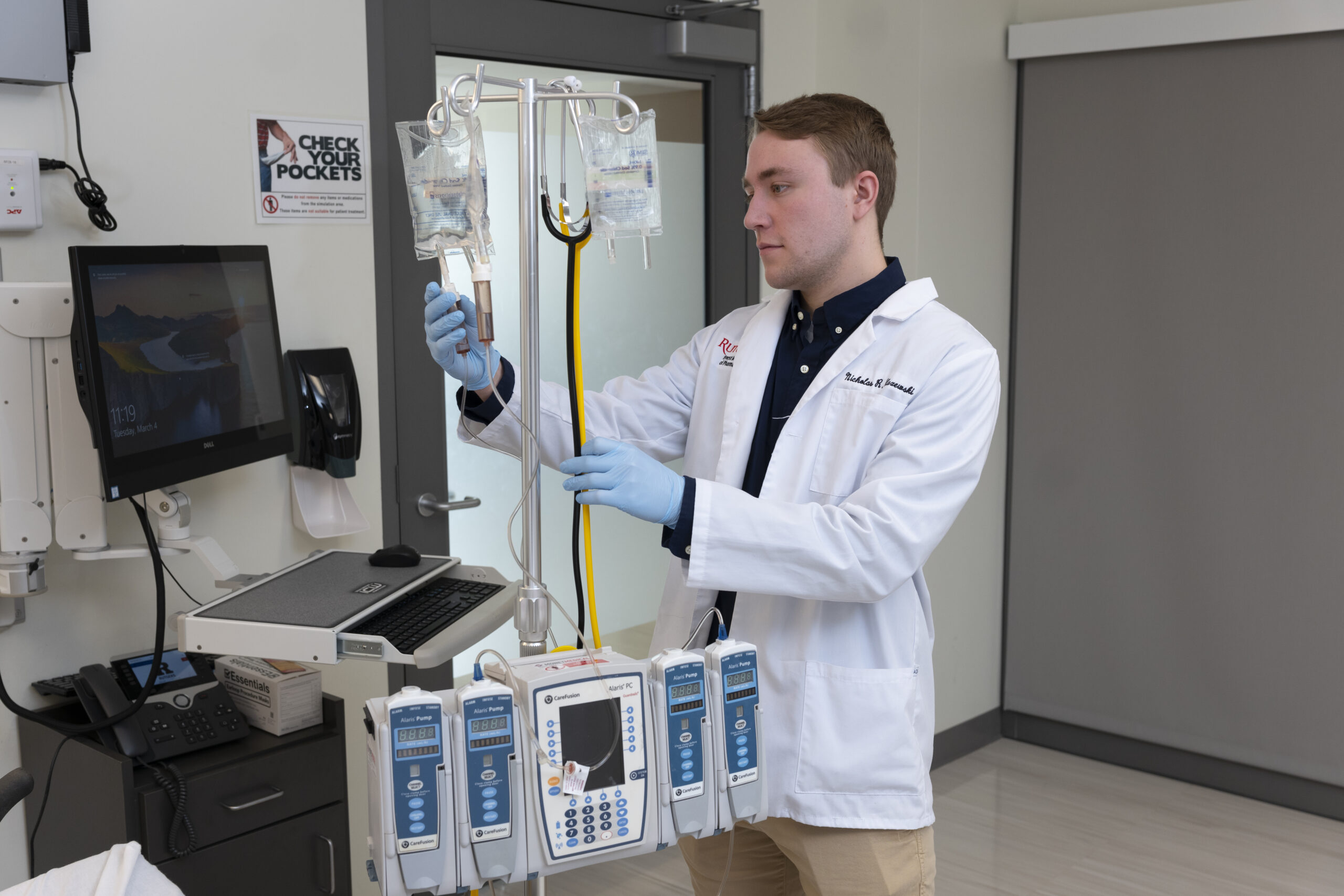What We Offer
Cutting-Edge Technology: Our simulation areas are equipped with the latest technology, including high-fidelity manikins, audio-video recording systems, and advanced medical equipment. These tools allow students to practice and hone their skills in a safe and controlled environment designed by faculty to meet specific learning objectives.
Realistic Clinical Scenarios: Throughout the curriculum, students engage in a variety of simulated clinical scenarios that mimic real-life situations. These scenarios challenge students to develop critical thinking, problem-solving, and decision-making skills while practicing teamwork and communication, contributing to their Professional Identity Formation (PIF) as outlined in the strategic plan.
Interprofessional Education: We believe in the power of teamwork. Our simulation center facilitates interprofessional education, where pharmacy students collaborate with peers from physician assistant, medicine, and other healthcare disciplines. This collaborative approach prepares students for the integrated nature of modern healthcare and supports the strategic plan’s emphasis on interprofessional education.
Expert Faculty: Our experienced faculty and staff members bring a wealth of knowledge and expertise to the simulation center. They provide guidance, feedback, and mentorship to ensure that students gain the most from their simulation experiences, fostering a culture of PIF and aligning with the strategic plan’s goal to “Expand mentoring and professional development of the School’s community.”



